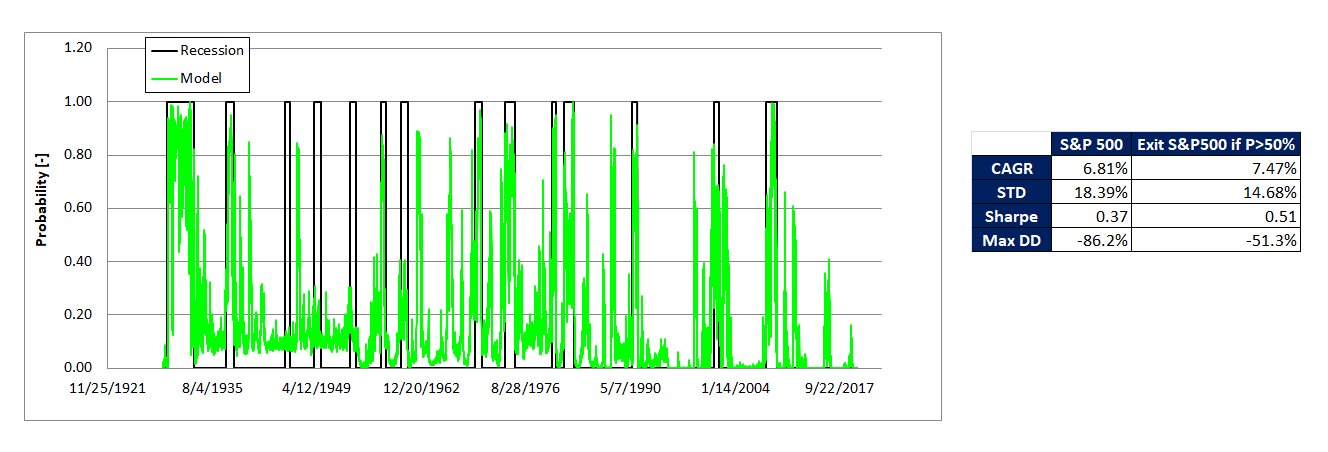|
The short answer I can give you is: I have no idea. My investments so far have been systematic and macro based. The market moves in a certain direction and the macro points towards the asset that is more likely to generate the highest return within the next 30 days. Despite, lot of folks have been talking about recession for at least the last couple of years. When the stock market reaches the all the time high, quite often we read of doomsday predictions right around the corner. A recession is defined by the GDP falling two consecutive quarters. Nothing in life or in the nature is coincidental. There is always some sort of cause-effect behind everything. The same applies to recession. Now if you want to get a better insights on how the economy machine works, I would recommend to watch this video from Ray Dalio; https://www.youtube.com/watch?v=PHe0bXAIuk0&t=1097s. The video is 30 minutes long and it provides a good overview of the bolts and nuts behind the economic machines. So it does about recession. If causes and effects can be clearly quantified, we can then think of creating a model and try to predict the next recession. I have tried to do that using a large part of the mechanics shown in the video. It was not easy and has you can see the model captures most of the recessions from 1929 to modern days, it misses the ones of 1945/48/53/60 and sometimes it predicts recession when (according to the standard definition) the GDP still goes up. Let’s imagine that this model would been available to us back in 1928 (use lot of imagination) and then we would have bought the S&P500 when the probability of a recession is below 50% while going cash when the probability is above 50%. By now we should have managed to achieve a CAGR of 7.47% with a max drawdown of 51%. Buying & holding the S&P 500, we would have made 6.81% with a max drawdown of 86%. 0.66% might not seem much but if you would have invested $1 in 1928 by now it would have grown to $433 vs. the $129 of the buy & hold approach. Every drop counts. Going back to the original question: is a recession around the corner? No, according to the model.  |
|
|
|
Questions?Contact us here.
DisclaimerThe information, analysis, data and articles provided in this and through this website are for informational purpose only. Nothing should be considered as an investment advice. Alpha Growth Capital does not make any recommendation to buy, sell or hold any security or position. The website and information provided through it are marketed “as is”. There is no guarantee that anything presented and provided on this and through this website is complete, accurate and correct. Relying on the information provided on this website and through its communication channels is done entirely at the individual own risk. There is no registration as investment advisor under any security law and nothing provided in this and through this website should be interpreted as a solicitation to buy, hold or sell any mentioned financial product or service. Past performance is not indicative of future results. Any financial decision is at the sole responsibility of the individual.
By navigating in this website, you agree to its Terms & Conditions |
